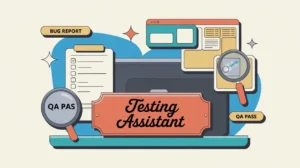What Does the Implementation Lead Role Involve?
An implementation lead is responsible for overseeing the execution of programs, projects, or initiatives, ensuring that plans are translated into effective action. This role involves managing implementation teams, coordinating cross-functional efforts, maintaining timelines and quality standards, and troubleshooting operational challenges. It typically sits within program management, operations, or delivery functions. In nonprofits and social enterprises, implementation leads play a critical role in driving strategic initiatives forward and ensuring that delivery aligns with organizational goals and stakeholder expectations.
At What Level does this Role Operate?
Mid Level: This role typically reports to a program director, operations director, or senior implementation leader. It involves supervisory responsibilities over implementation coordinators or support staff, along with significant accountability for execution outcomes.
Relative Employability: Implementation lead roles are increasingly in demand as organizations focus on improving execution capacity. Nonprofits and social enterprises rely on these roles to ensure that strategic plans are implemented efficiently, making them valuable across a range of sectors and thematic areas.
Relative Pay Scale: Implementation lead roles sit within mid-level pay bands, reflecting their combination of operational leadership, team management, and delivery accountability.
What are the Key Responsibilities and Activities?
- Lead the implementation of programs, projects, or strategic initiatives from planning through delivery
- Supervise and support implementation coordinators or project staff, ensuring alignment with timelines, budgets, and quality standards
- Coordinate cross-functional teams and external partners to maintain clear communication and resolve operational challenges
- Develop and oversee implementation plans, workstreams, and reporting frameworks
- Monitor progress, identify risks or delays, and implement mitigation strategies
- Provide leadership in adapting plans to changing circumstances while maintaining focus on outcomes
- Report on implementation status to senior leadership, funders, or partners
- Contribute to continuous improvement of implementation methodologies and tools
What Core Competencies and Qualifications are Needed?
Required Qualifications and Experience
The following reflect common qualifications and experience expected for this role, while recognizing that pathways may vary by context, organization, and region.
- Academic background in project management, public administration, business administration, or related fields, or equivalent professional experience
- Several years of experience in program or project implementation, with supervisory responsibilities
- Strong understanding of operational planning, resource allocation, and performance management
- Proven ability to lead teams, manage stakeholders, and oversee complex workstreams
- Proficiency with project management tools and reporting systems
- Strong problem-solving, communication, and leadership skills
Key Competencies
- Implementation strategy and planning
- Team leadership and supervision
- Cross-functional coordination
- Risk management and problem solving
- Monitoring and reporting on progress
- Operational adaptability and decision making
How are AI and Automation Shaping this Role?
An AI-native implementation lead will look to AI and automation to improve oversight, streamline workflows, and anticipate operational challenges. They can use AI tools to analyze performance data in real time, flag emerging risks, and automate task allocation or reporting functions. Automation can support timeline tracking, team coordination, and communication across multiple implementation streams. By integrating these tools effectively, implementation leads can manage larger portfolios with greater accuracy, agility, and strategic insight.
What Career Pathways and Transferable Skills are Associated with this Role?
Implementation lead roles can lead to positions such as program manager, operations director, strategy manager, or senior implementation director. The skills developed in operational leadership, team management, problem solving, and adaptive execution are highly transferable across nonprofits, social enterprises, and the private sector. This role provides a strong stepping stone toward senior leadership positions that shape organizational strategy and delivery at scale.







